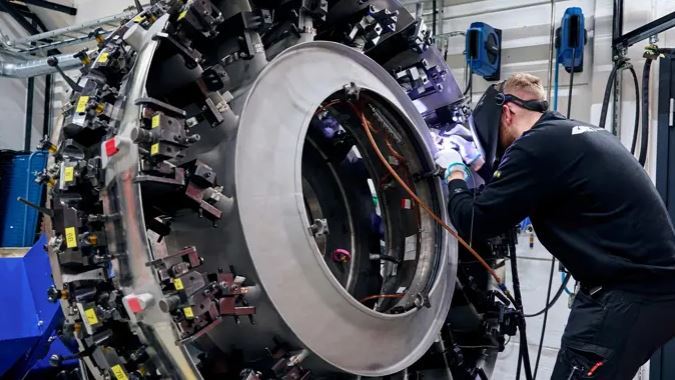Evaluating Investment Opportunities in Bytes Technology Group
The UK is witnessing a transformative wave in digitisation and artificial intelligence that is permeating both public and private sectors. Bytes Technology Group (BTG) is strategically positioned to capitalize on this trend as it offers software, AI, and cybersecurity solutions across these domains.
BTG comprises two entities: Bytes Software Services, which caters primarily to private companies and the public sector, and Phoenix Software, which focuses on public sector clients. Remarkably, 97 percent of BTG’s revenue is generated within the UK, with around 50 percent of its gross profits stemming from its collaboration with Microsoft.
As the company approaches the release of its annual financial results, it previously disclosed in a trading update that its gross invoiced income (GII) has impressively surpassed £2 billion for the first time.
Operating profits showed a robust growth in the mid-to-high teens, alongside a cash conversion rate that exceeded the company’s goal of 100 percent, resulting in a cash reserve of over £110 million. Following the trading update, BTG’s stock price surged nearly 20 percent.
In the last financial year, BTG’s public sector GII reached £1.1 billion, marking a 33 percent increase from £857 million in the previous year. Meanwhile, GII from corporate clients rose to £685.5 million from £583 million. This significant double-digit growth is encouraging, especially given BTG’s market share of merely 4 percent in the UK, which is just slightly behind Softcat’s 5 percent.
The public sector presents substantial growth opportunities for BTG, particularly as the government has pledged to harness AI for enhancing public services. According to analysts at Shore Capital, 47 percent of central government services and 45 percent of NHS services currently lack a digital pathway. BTG is already integrating AI solutions like Microsoft Copilot into organizations such as the NHS and HM Revenue & Customs.
While BTG’s close affiliation with Microsoft is generally seen as advantageous, recent modifications to Microsoft’s partner incentive structure have raised concerns regarding this partnership.
In January, Microsoft made changes encouraging partners to shift small and medium-sized clients from traditional enterprise agreements—typically structured on a three-year cycle and billed annually—to cloud solutions provider agreements, which are billed monthly.
Andrew Holden, BTG’s chief financial officer, noted, “They are moving away from rewarding partners for transactions and shifting towards encouraging partners to influence customer consumption of specific products.”
According to Berenberg analysts, Microsoft’s incentive changes affected the last two full months of BTG’s financial year, a period that remains strong and should alleviate some market concerns. They asserted, “Concerns regarding Microsoft’s incentive adjustments appear overblown.”
BTG has also diversified its sources of gross profits over the years. At the beginning of the last decade, approximately 85 percent of its gross profits came from Microsoft, whereas this figure has now reduced to 50 percent.
BTG’s journey has not been without challenges, including the fallout from an investigation involving former CEO Neil Murphy, who resigned after executing 119 unauthorized transactions involving BTG shares between 2021 and 2023.
Nonetheless, a subsequent investigation conducted by PwC cleared the company of any wrongdoing, according to Holden, as BTG works diligently to rebuild investor trust. “It was unwise of me to overlook the share trading guidelines and governance,” Murphy stated.
Despite potential governance concerns causing some investors to hesitate, BTG shares currently trade at 22 times forward earnings, slightly below Softcat’s 23. Nevertheless, BTG shares appear inexpensive relative to their historical performance, trading at 26 times projected earnings per share for 2024.
With much of this year’s appreciation already reflected in the shares following the recent trading update, BTG presents a compelling entry point into the UK’s AI evolution, compared to Softcat.
Advice: Buy
Reason: Although valuations are elevated, they remain lower than Softcat, with strong growth potential.




Post Comment